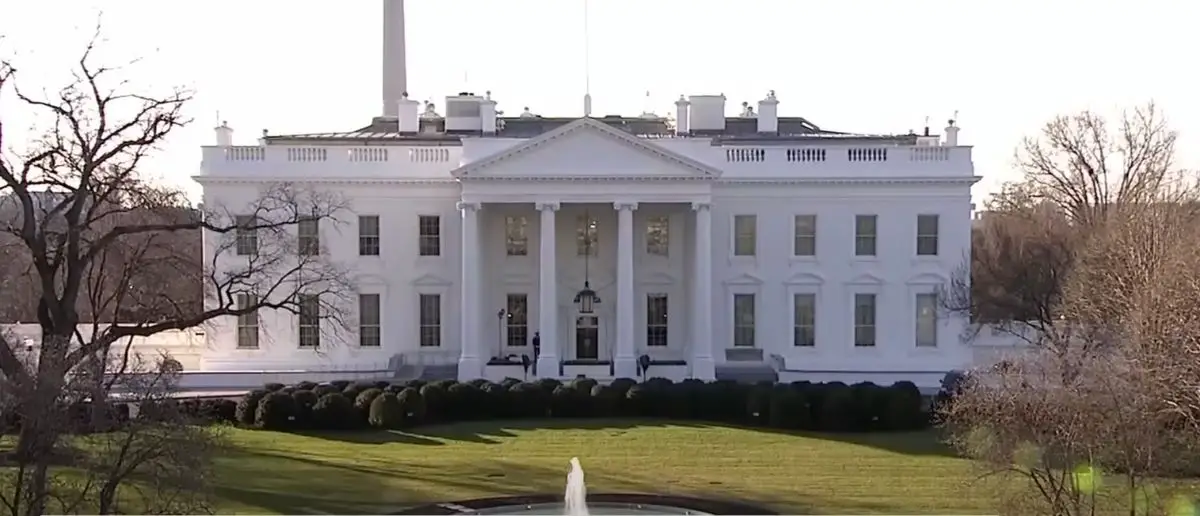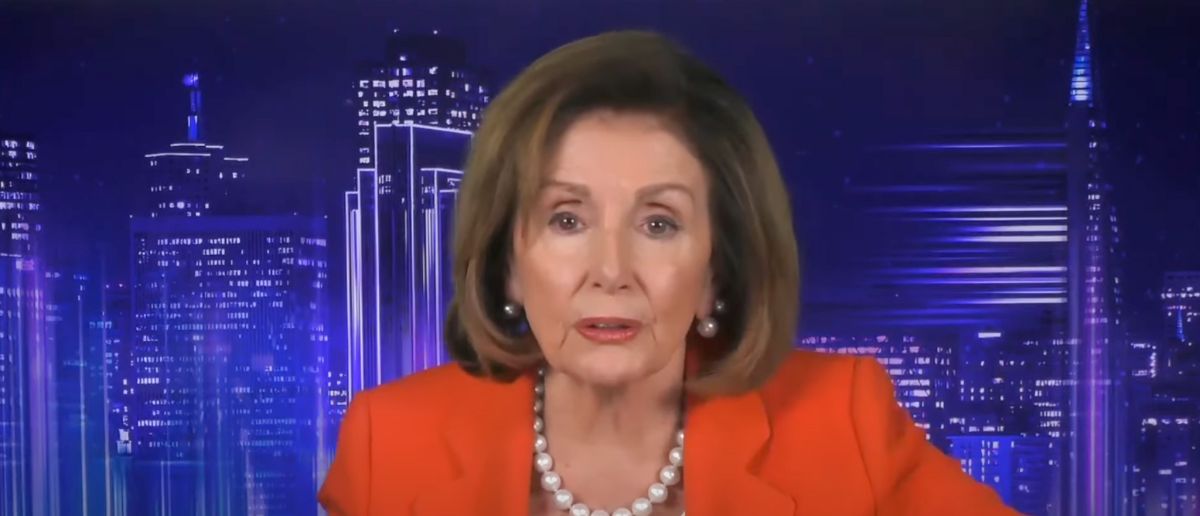
The federal courts have been in chaos. Every day they are ruling on a major case.
And now a federal appellate court has hit the Trump White House with a game-changing ruling.
Trump Scores Massive Victory as Appeals Court Green-lights Foreign Aid Cuts
A federal appeals court on Wednesday cleared the path for the Trump administration to slash billions in foreign aid funding, overturning a lower court’s attempt to shackle the president’s authority. The U.S. Court of Appeals for the D.C. Circuit, in a 2-1 decision, handed the White House a decisive victory, affirming that only the legislative branch’s Government Accountability Office (GAO) can challenge the administration’s decisions to withhold congressionally appropriated funds. This ruling is a critical step in dismantling the globalist stranglehold on America’s wallet, putting taxpayers first.
The decision stems from a legal battle ignited by President Trump’s bold executive order on his first day back in office in January. The order directed the State Department and the U.S. Agency for International Development (USAID) to freeze foreign aid payments, a move aimed at reining in what Trump has long called wasteful spending on programs that don’t align with American interests. The administration’s push to dissolve USAID entirely and redirect funds to domestic priorities has sparked fierce opposition from establishment elites and nonprofit groups, who have leaned on the courts to block the president’s reforms.
“Radical left dark-money groups have been using the court system to seize control of U.S. foreign policy,” an Office of Management and Budget (OMB) spokesperson told the Daily Caller News Foundation. “Today’s decision stops these private groups from maliciously interfering with the President’s ability to spend responsibly and administer foreign aid in a lawful manner and in alignment with his America First policies.” This statement cuts to the core of the fight: unelected bureaucrats and activist organizations have no business dictating how America’s hard-earned tax dollars are spent overseas.
The D.C. Circuit’s majority opinion, penned by Judge Karen LeCraft Henderson, a George H.W. Bush appointee, eviscerated the arguments of the plaintiffs—a coalition of grant recipients who sued in February to restore the frozen funds. “The district court erred in granting that relief because the grantees lack a cause of action to press their claims,” Henderson wrote. She was joined by Judge Gregory Katsas, a Trump appointee, in rejecting the lower court’s injunction issued by U.S. District Judge Amir Ali in March. The majority made it clear that private groups can’t just waltz into court and demand control over federal spending.
Henderson’s opinion didn’t mince words, stating, “Because the grantees lack a cause of action, we need not address on the merits whether the government violated the Constitution by infringing on the Congress’s spending power through alleged violations of the 2024 Appropriations Act, the ICA and the Anti-Deficiency Act.” This procedural smackdown avoids the constitutional quagmire, focusing instead on the plaintiffs’ lack of legal standing. It’s a rebuke to those trying to use the judiciary as a battering ram against Trump’s policies.
The ruling overturned a temporary restraining order issued by Judge Ali, a Biden appointee, who had sided with the nonprofits in February, blocking Trump’s executive order from taking effect. Ali’s order was a classic example of judicial overreach, attempting to force the administration to release funds Congress had appropriated for fiscal year 2024, including nearly $4 billion for USAID’s global health programs and over $6 billion for HIV and AIDS initiatives. Trump’s critics argue these programs are vital, but the president has consistently framed them as bloated handouts that enrich NGOs while doing little for everyday Americans.
The majority’s decision sidestepped the thorny question of whether Trump’s cuts violate the Constitution’s separation of powers, a point raised by the dissenting judge, Florence Pan, a Biden appointee. Pan argued that the executive branch cannot disobey “duly enacted statutes,” adding, “Yet that is what the majority enables today.” She went on to claim, “The majority opinion thus misconstrues the separation-of-powers claim brought by the grantees, misapplies precedent, and allows Executive Branch officials to evade judicial review of constitutionally impermissible actions.” Her dissent reeks of the same tired globalist rhetoric that prioritizes foreign interests over American sovereignty.
This isn’t the first time Trump’s foreign aid cuts have faced legal scrutiny. Earlier in 2025, both the D.C. Circuit and the Supreme Court rebuffed the administration’s attempts to block Ali’s initial restraining order, though the Supreme Court later stayed parts of the district court’s ruling. The latest decision marks a turning point, empowering the administration to move forward with its plan to gut USAID and redirect resources to domestic priorities like infrastructure, border security, and veterans’ care—issues that resonate deeply with Trump’s base.
During his first term, Trump proposed slashing foreign aid budgets by up to 30%, targeting programs he deemed inefficient or misaligned with U.S. interests. His 2025 executive order takes that fight to the next level, aiming to dismantle USAID entirely—a move cheered by conservatives who see the agency as a relic of establishment foreign policy.
Critics of the cuts, including humanitarian groups like the Global Health Council, have decried the ruling as a blow to vulnerable populations worldwide. They argue that slashing aid for global health and HIV programs will lead to “disease, starvation, and death” for millions. But for Trump supporters, these claims are just more fearmongering from the same NGOs that have grown fat off taxpayer dollars while delivering questionable results. The administration argues that foreign aid must be tied to clear American interests, not handed out as charity to nations that often criticize or undermine U.S. policy.
The D.C. Circuit’s ruling also highlights the critical role of judicial appointments in shaping policy outcomes. With Henderson and Katsas—both Republican appointees—in the majority, the decision denotes the importance of Trump’s efforts to reshape the federal judiciary during his first term. His appointment of over 200 federal judges, including three Supreme Court justices, has created a firewall against activist challenges to his agenda, giving conservatives a fighting chance to roll back decades of liberal overreach.
The case now returns to the district court for further proceedings, but the appeals court’s ruling sets a powerful precedent. It signals that private groups can’t just sue their way into controlling federal spending—a win for executive authority and a blow to the left’s lawfare tactics. As the OMB spokesperson noted, this decision “affirms the President’s ability to spend responsibly to enact his America First agenda.” That’s music to the ears of millions of Americans tired of seeing their tax dollars funneled to foreign projects with little accountability.
For the average American, this ruling is about more than just legal technicalities—it’s about taking back control. Foreign aid, which ballooned to over $50 billion annually under previous administrations, has long been a sore point for populists who argue it’s time to prioritize America’s crumbling infrastructure, struggling small towns, and forgotten veterans. Trump’s push to cut these funds is a direct response to that sentiment, resonating with voters who feel betrayed by decades of globalist policies.
The left, predictably, is up in arms. Progressive outlets and NGOs are already spinning this as an attack on the “rule of law,” conveniently ignoring that the rule of law also means respecting the president’s constitutional authority to execute foreign policy. The hypocrisy is glaring—when Biden’s administration pushed its agenda, these same groups cheered, but now they cry foul when Trump uses his lawful powers to put America first.
What’s next? The plaintiffs could appeal to the full D.C. Circuit or even the Supreme Court, but with the judiciary increasingly aligned with constitutional originalism, their chances look slim. For now, Trump’s victory is a clear message: the days of unchecked foreign aid are over. The America First revolution is in full swing, and this ruling is just the latest proof that President Trump is delivering on his promise to put the American people first.
Stay tuned to the DC Daily Journal.





